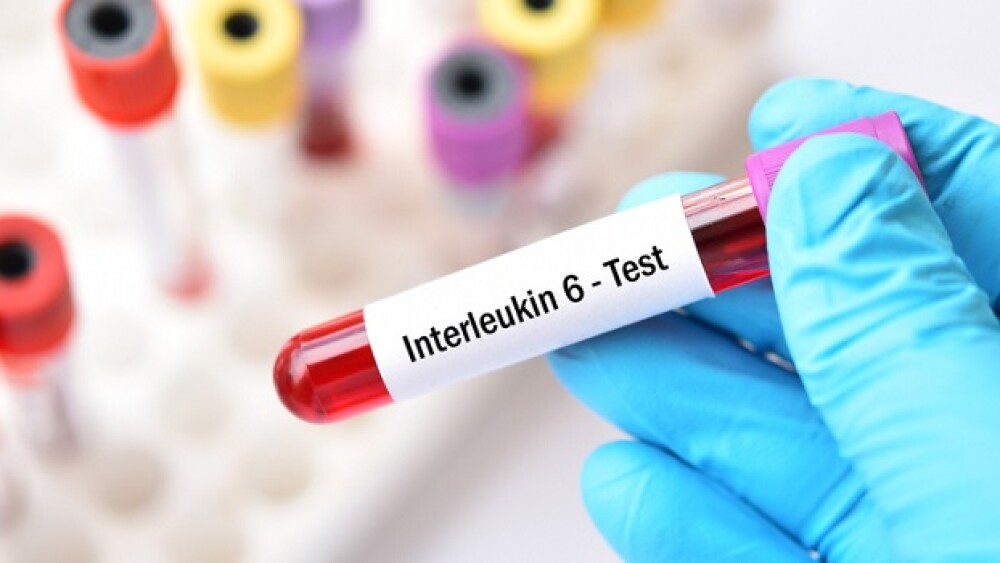Some cytokines can stimulate the immune system, while others slow it down. Here’s a look at the latest news on cytokine data and therapy developments.
Many people learned about so-called “cytokine storms” for the first time due to the COVID-19 pandemic. The human immune system, in the case of COVID, had a hyper-stimulated reaction to the virus, and the massive inflammatory response was potentially life-threatening. According to the National Cancer Institute (NCI), the definition of a cytokine storm is “A severe immune reaction in which the body releases too many cytokines into the blood too quickly.”
Cytokine storms were not a new problem, but they gained public attention due to the widespread pandemic. Cytokine storms, for example, were a common and severe side effect of CAR-T immunotherapy that requires specific training, monitoring and treatment to mediate.
But cytokines aren’t all bad. Some stimulate the immune system while others slow it down. Cytokines can also be manufactured in the laboratory and be used to treat cancer, infections and other diseases. Here’s a look at the latest news on cytokine data and use.
Rheos Medicines, based in Cambridge, Mass., published preclinical data supporting MALT1 inhibition to treat autoimmune and inflammatory diseases. The data demonstrated that a MALT1 inhibitor could be designed to treat autoimmune and inflammatory diseases without reducing the beneficial regulatory T cells (Tregs). The company’s lead product, RHX-317, is a novel small molecule MALT1 inhibitor being developed to treat autoimmune diseases.
MALT1 (mucosa-associated lymphoid tissue lymphoma translocation protein 1) is a dual-function scaffolding molecule and paracaspase expressed in immune cells. It plays a role in NF-kappa B mediated lymphocyte activation and proliferation.
“The data indicate that we have succeeded in designing a MALT1 inhibitor that interferes with systemic and tissue-specific drivers of disease and, importantly, that it exerts broad anti-inflammatory effects based on partial inhibition of effector function in multiple immune cell types without reducing the number and benefit of regulatory T cells,” Dania Rabha, Ph.D., Rheo’s chief scientific offer said. “These findings open a path toward new therapies that target MALT1.”
Researchers from the Shanghai Institute of Cardiovascular Diseases, Fudan University, recently published research on the use of a biomimetic nanoparticle to treat inflammation associated with acute myocardial infarction (MI). They note that MI induces a sterile inflammatory response that can damage recovery and that “despite the progress in anti-cytokine biologics, anti-inflammation therapy of MI remains unsatisfactory, due largely to the lack of targeting and the complexity of cytokine interactions.”
They fused neutrophil membranes with conventional liposomes to fabricate biomimetic liposomes, making them “ideal decoys of neutrophil-targeted biological molecules.” They targeted infarcted hearts and neutralized proinflammatory cytokines, which appeared to protect the cardiac muscle and promote angiogenesis (growth of new blood vessels) in a mouse model of myocardial ischemia-reperfusion.
Researchers from the Infectious Disease Clinic, Azienda Sanitaria Universitaria Friuli Centrale, in Udine, Italy, presented research at the European Congress of Clinical Microbiology & Infectious Diseases (ECCMID) in Lisbon, Portugal, last month that identified a panel of cytokines that can be used to predict which COVID-19 patients are at risk of serious disease. Although it is known that cytokine storms are associated with COVID-19, it is not entirely understood which cytokines it drives. Their research identified specific cytokines related to disease severity and was able to create a decision tree that allowed the prediction of patients at the greatest risk of a negative outcome.
For example, high levels of IP-10 were associated with an excessive immune response that was tied to the patient likely to develop lung fibrosis and require intubation. Alternately, IL-6, a pro-inflammatory cytokine, was often accompanied by increased levels of sIL2Ra and IL-10, which have an anti-inflammatory role. In this case, immunosuppressive drugs typically used to treat severe COVID-19 could be more harmful than helpful.
Dr. Emanuela Sozia, M.D., who made the presentation, said, “It is not always possible to determine which COVID-19 patients have the worst prognosis, especially early on. It is becoming increasingly clear, however, that the earlier we treat excessive inflammation, the more likely we are to turn it off quickly and definitively and so avoid irreversible organ damage.”
ASKGene recently completed a $20 million Series A financing round. The funds will be used to advance its pipeline of drugs and develop its SmartKine cytokine prodrug platform. The technology platform overcomes the limitations of current cytokine therapeutics, allowing them to design drugs that selectively activate a subset of immune cells preferentially at a disease site.
“Application of immunostimulatory cytokines has become a promising approach in cancer immunotherapy, however unfavorable PK and safety profile limit their further clinical development and application,” Allan Liu said, director at TF Capital, which co-led the financing with Qiming Venture Partners. “AskGene’s proprietary SmartKine platform can overcome limitations of first-generation recombinant cytokines by achieving conditional activation of cytokines in the tumor microenvironment to unleash the full therapeutic potential.”





